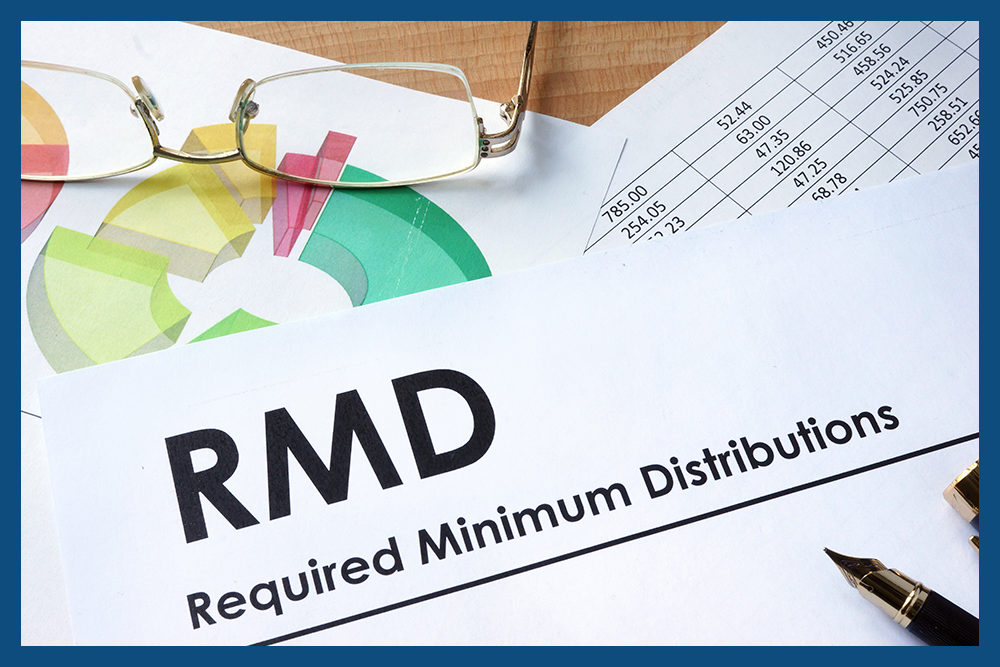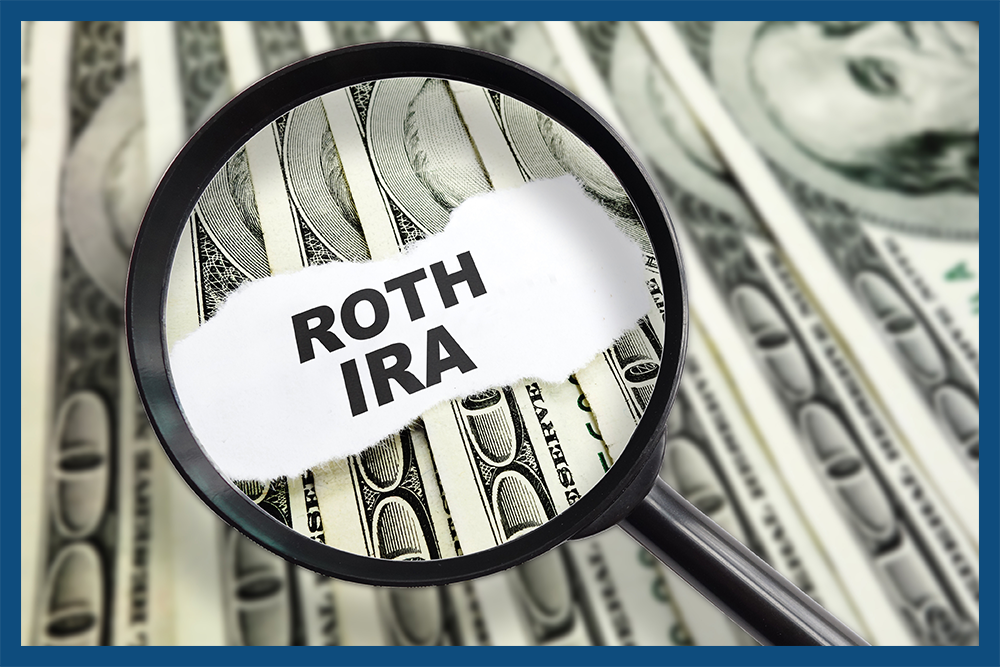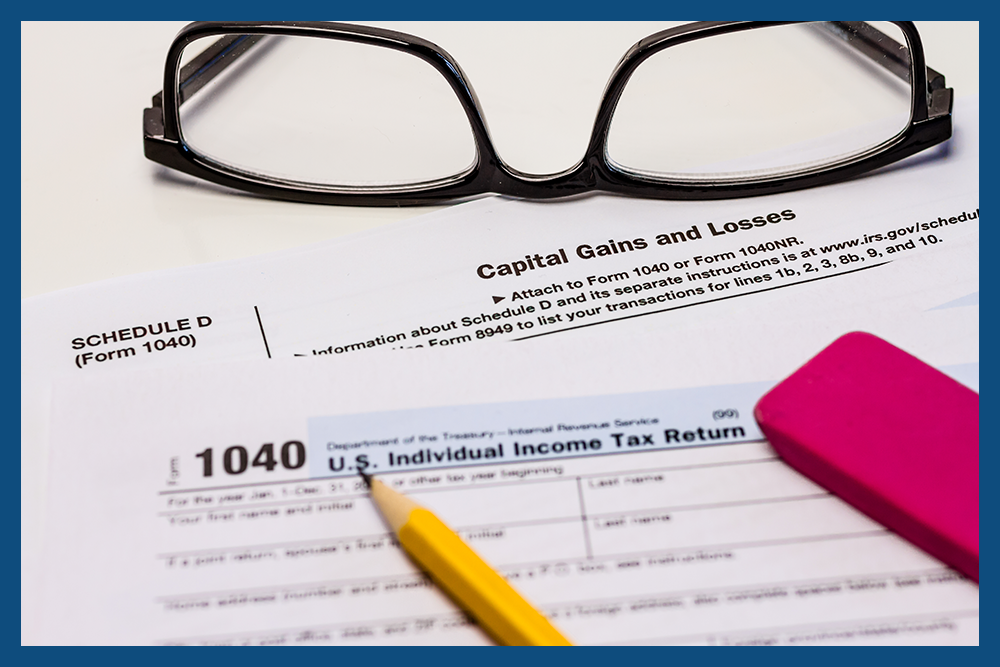Uncle Sam doesn’t let you off the financial hook once you reach retirement. Fortunately, you can create a retirement plan that minimizes your taxes once you understand where and when they arise.
You worked hard your whole career to save for retirement, but it doesn’t stop there. Once you get to retirement age, many retirees don’t take into consideration the cumulative impact of federal and state income taxes on withdrawals from their nest eggs.
First step is figuring out your tax bracket. Your tax rate in retirement will depend on the total amount of your taxable income and your deductions. Begin by listing each type of income and how much will be taxable to estimate your tax rate. Add that up, then reduce that number by your expected deductions for the year. For 2021, the top tax rate remains at 37% with incomes greater than $523,600 ($628,300 for married couples filing jointly). The other rates for 2021 are as follows:
- 35%, for incomes over $209,425 ($418,850 for married couples filing jointly)
- 32% for incomes over $164,925 ($329,850 for married couples filing jointly)
- 24% for incomes over $86,375 ($172,750 for married couples filing jointly)
- 22% for incomes over $40,525 ($81,050 for married couples filing jointly)
- 12% for incomes over $9,950 ($19,900 for married couples filing jointly)
Here are some key taxes and strategies you don’t want to miss if you want lower taxes in retirement.


In retirement, you’ll need to pay close attention to your Social Security benefits and taxable income. This is because as your taxable income increases, the potential tax you have to pay also rapidly increases.
The taxable amount—anywhere from zero to 85%—depends on how much other income you have in addition to Social Security. If you and your spouse file jointly – known to the IRS as “combined income” – you can plug your combined income into a formula in its tax worksheet to determine how much of your benefits will be taxable each year. The range for a joint return is $32,000 to $44,000. If you fall within that range, as much as 50% of your benefits will be subject to income tax. Exceeding the upper limit of $44,000 will increase the percentage to 85%, just like the individual tax return.


The IRS released new required minimum distribution (RMD) tables that become effective in 2022: The minimum distribution amount is reduced by roughly two years based on changes to life expectancy. The lifetime table had 27.4 years as the distribution period for age 70 on previous tables. Now at age 72 it has 27.4 years.
It’s important to point out that depending on your RMD amount and other income, your distributions could push you into a higher tax bracket, resulting in more taxes in retirement. So, keep an eye on your taxable income so you can minimize your taxes as much as possible.


Roth IRAs come with a big long-term tax advantage: Contributions to Roths aren’t deductible, but withdrawals are tax-free. (In order to take distributions from a Roth account, the account has to be open for at least five years.)
When you withdraw the money in retirement however, you won’t owe taxes on appreciation, income, or withdrawals. A Roth IRA is exempt from RMDs, while a Roth 401(k) is not—though you can still avoid RMDs by rolling it into a Roth IRA when you retire.


If you have a pension, you will have to pay taxes on any distributions you take from your pension payments and tax-deferred annuities or retirement accounts.
Most pensions are funded with pre-tax income, and that means the full amount of your pension income would be taxable when you receive the funds. Payments from private and government pensions are usually taxable at your ordinary income rate, assuming you made no after-tax contributions to the plan.


If you sell stocks, bonds or mutual funds that you’ve held for more than a year, the proceeds are taxed at long-term capital gains rates of 0%, 15% or 20%. Compare these figures to the top 37% tax rate on ordinary income.
According to the IRS, a capital gain rate of 15% applies if your taxable income is $80,000 or more but less than $441,450 for single; $496,600 for married filing jointly or qualifying widow(er); $469,050 for head of household, or $248,300 for married filing separately.
However, a net capital gain tax rate of 20% applies to the extent that your taxable income exceeds the thresholds set for the 15% capital gain rate.
There are a few other exceptions where capital gains may be taxed at rates greater than 20%:
- The taxable part of a gain from selling section 1202 qualified small business stock is taxed at a maximum 28% rate.
- Net capital gains from selling collectibles (such as coins or art) are taxed at a maximum 28% rate.
- The portion of any unrecaptured section 1250 gain from selling section 1250 real property is taxed at a maximum 25% rate.
Note: Net short-term capital gains are subject to taxation as ordinary income at graduated tax rates.

Understanding taxes is critical when it comes to retirement investing. Taxes always have the potential to rise, so will this impact your retirement savings? Having an effective strategy for paying taxes on your retirement income is a crucial component to surviving on a fixed income and avoiding “tax surprises.”
Investments in tax-deferred options means that your funds have the potential to compound interest for years, allowing it to compile interest at a quicker rate. However, tax-deferred options are generally constructed for long term goals, and there may be restrictions on when money can be taken out without fees.
The rigor of navigating them all on your own can lead to frustration and, ultimately, mistakes if you’re not careful. You don’t have to manage alone, though…

The key to keeping your retirement taxes low is not to wait until retirement to start planning – which as you can see, is no easy task.
It’s best to seek the advice of a financial advisor with experience in designing tax-efficient wealth-management plans. To learn more about tax-efficient strategies and what options may be the best for you, contact CKS Summit Group today.



